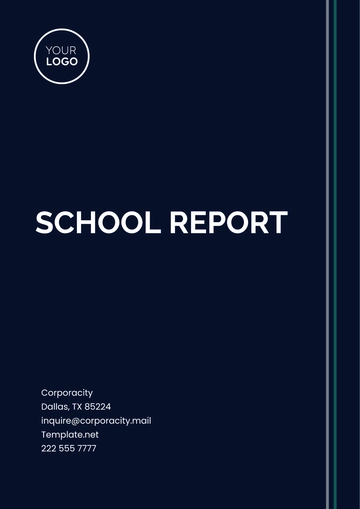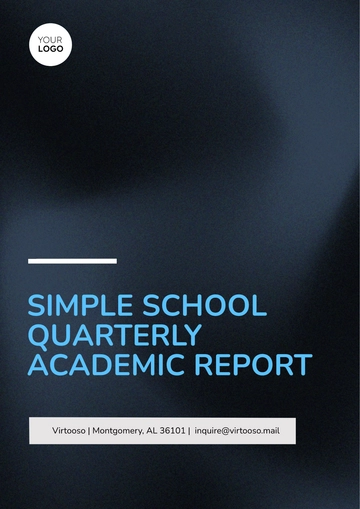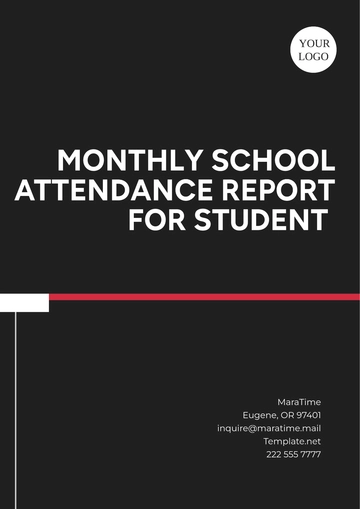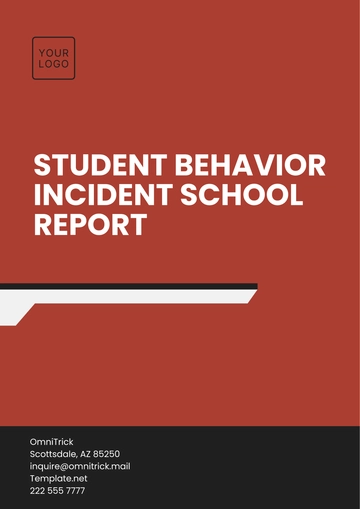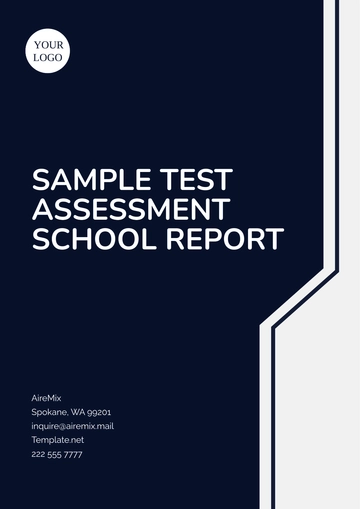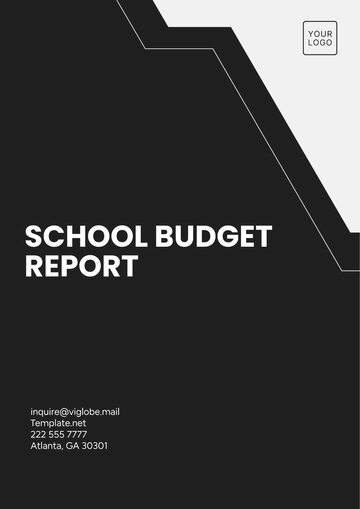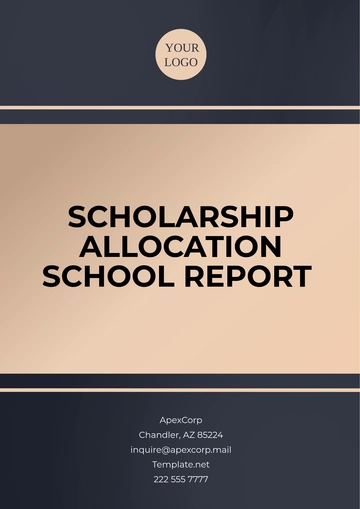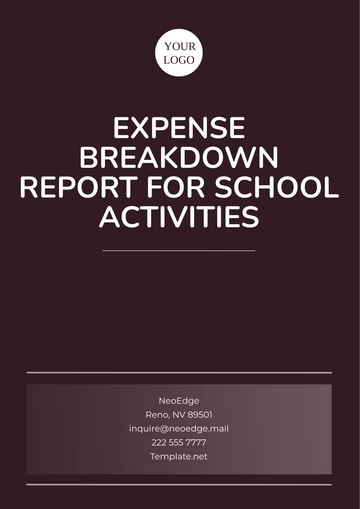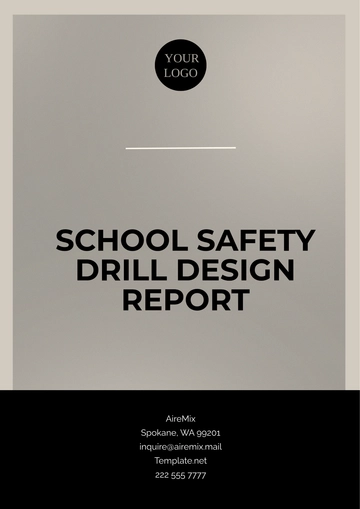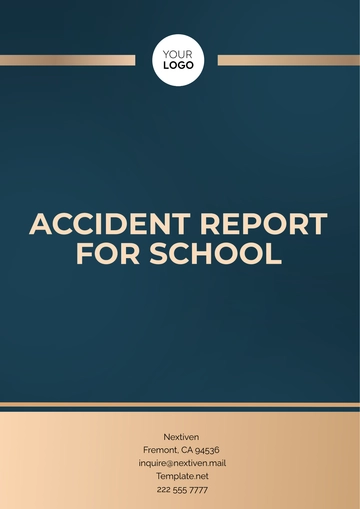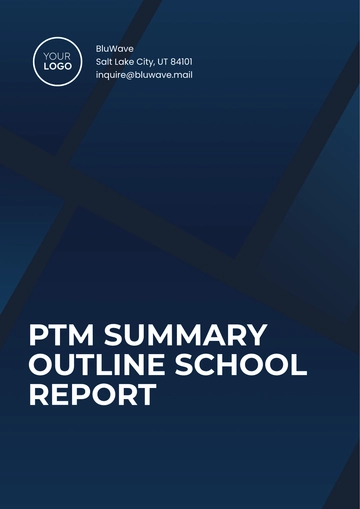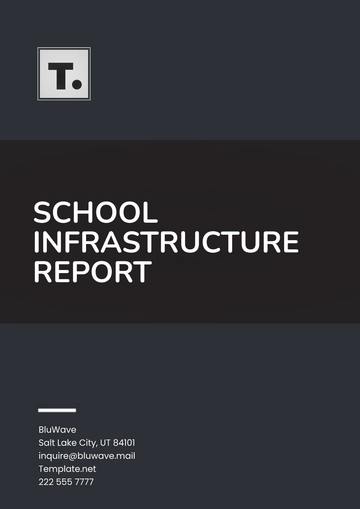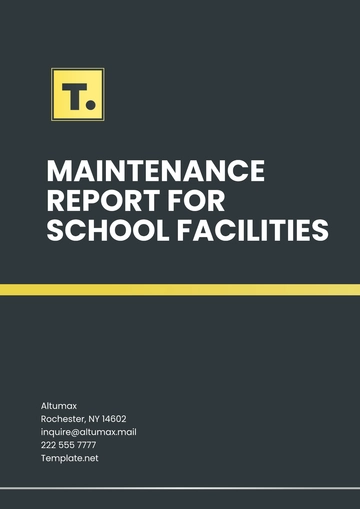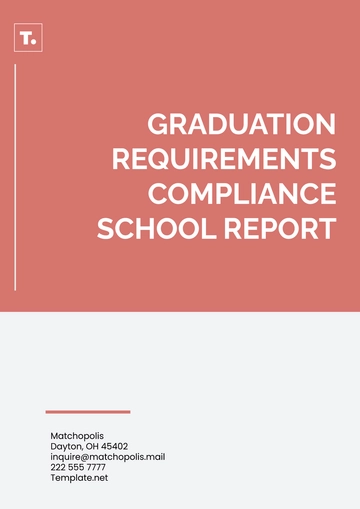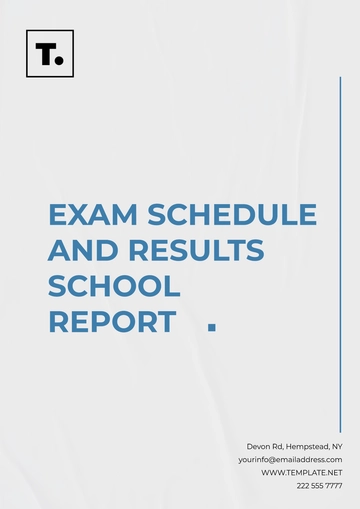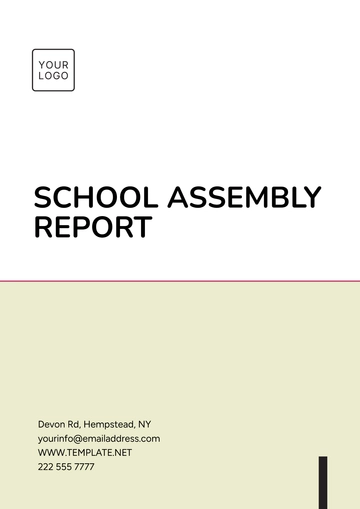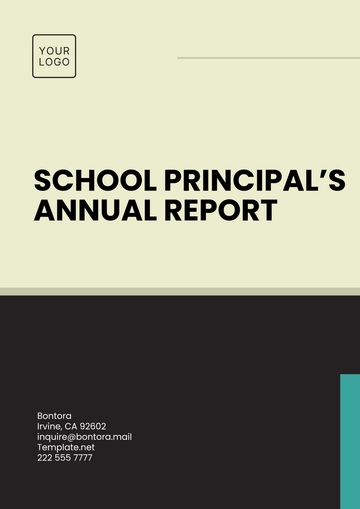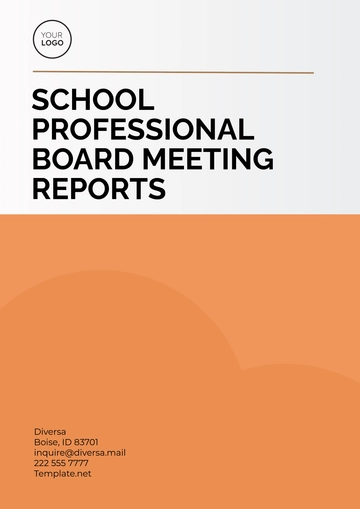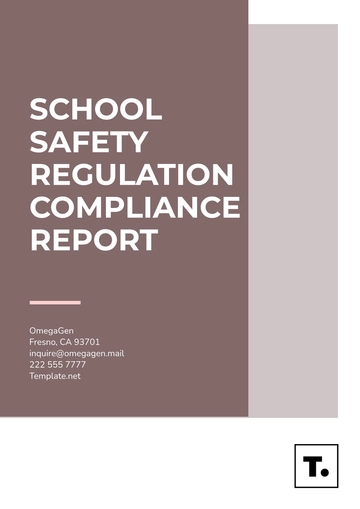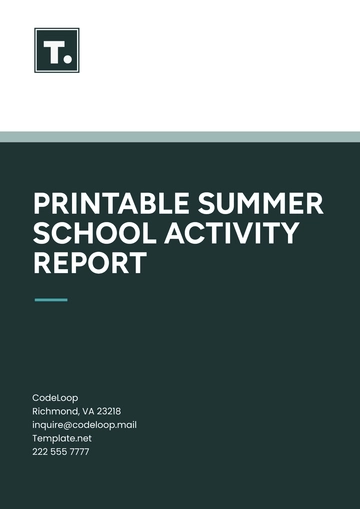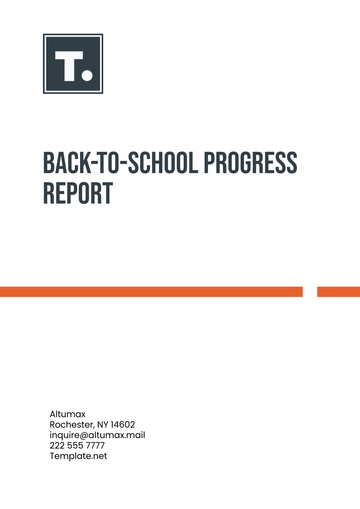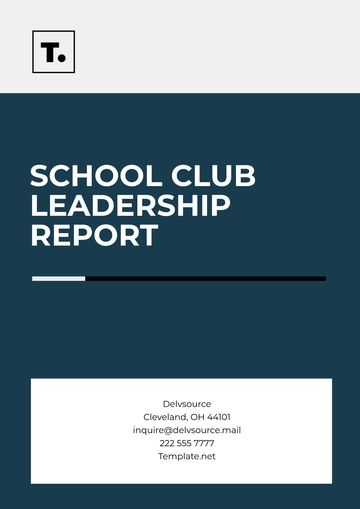Free School Research Report
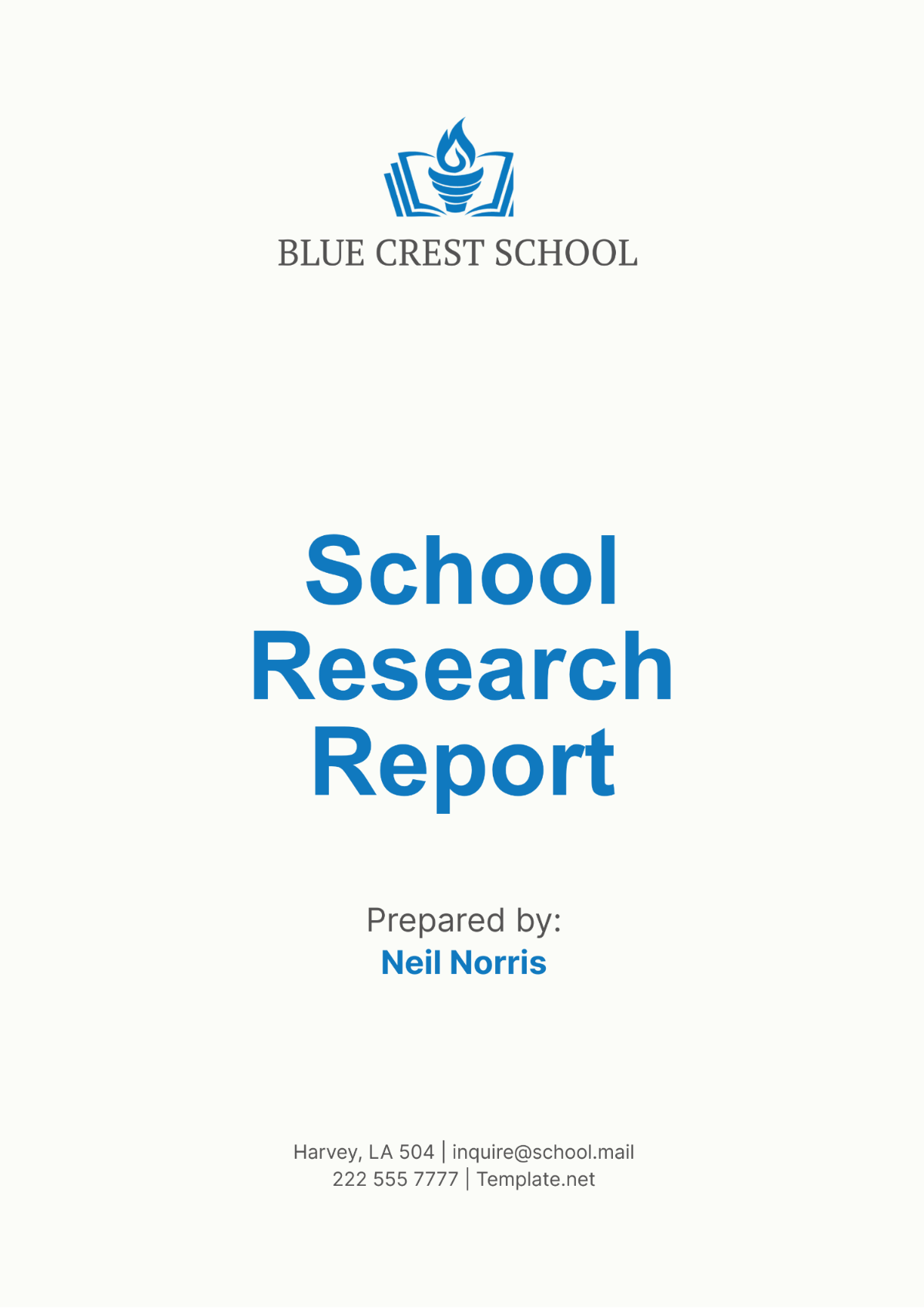
I. Executive Summary
This report presents the findings of our research study aimed at understanding the impact of extracurricular activities on student academic performance and overall development. The study explores various dimensions of student involvement in extracurricular activities and how it correlates with their academic success and personal growth. Key findings include:
Students involved in extracurricular activities showed a 15% higher GPA on average.
80% of participants reported improved time management skills.
70% of students involved in team sports exhibited better social interactions and teamwork abilities.
II. Introduction
Extracurricular activities play a crucial role in the holistic development of students. This study aims to investigate the relationship between student participation in extracurricular activities and their academic performance. By examining this relationship, we hope to understand the broader impacts on student development and provide insights that can inform school policies and practices. The significance of this study lies in its potential to highlight the benefits of a well-rounded education that includes both academic and extracurricular components.
III. Literature Review
Previous research has consistently shown that involvement in extracurricular activities is positively associated with academic achievement. According to Feldman and Matjasko (2005), students who participate in extracurricular activities tend to have higher GPAs and better attendance records compared to their non-participating peers. This suggests that extracurricular engagement may enhance students' organizational and time management skills, which are crucial for academic success.
Moreover, Mahoney, Cairns, and Farmer (2003) found that participation in structured extracurricular activities is linked to a reduction in dropout rates and increased school engagement. Their study indicates that extracurricular activities provide students with a sense of belonging and purpose, which can motivate them to remain in school and excel academically. These findings underscore the potential of extracurricular activities to foster a positive school experience and promote long-term educational attainment.
Additionally, Larson (2000) highlights the role of extracurricular activities in the social and emotional development of students. Participation in team sports, clubs, and other group activities helps students develop essential social skills, such as teamwork, communication, and leadership. These skills are not only valuable for academic success but also for personal and professional growth. Therefore, the integration of extracurricular activities into the school curriculum can contribute to the overall development of students, preparing them for future challenges.
IV. Methodology
A. Research Design
We employed a mixed-methods research design that combines quantitative and qualitative approaches. This design allowed us to gather comprehensive data on student participation in extracurricular activities and its impact on academic performance and personal development.
B. Population and Sample
The study targeted high school students from grades 9 to 12. We selected a sample of 200 students through stratified random sampling to ensure representation across different grades and activity types.
C. Data Collection
Data were collected using surveys and interviews. The surveys gathered quantitative data on students' academic performance and extracurricular involvement, while interviews provided qualitative insights into students' personal experiences and perceptions.
D. Data Analysis
Quantitative data were analyzed using statistical methods, including correlation and regression analyses, to identify relationships between extracurricular participation and academic performance. Qualitative data were analyzed thematically to identify common themes and patterns in students' experiences.
E. Ethical Considerations
We adhered to ethical guidelines by obtaining informed consent from all participants and ensuring confidentiality of the collected data. Participants were informed of their right to withdraw from the study at any time without any repercussions.
V. Results
The study's findings are presented in the following tables:
Table 1: Average GPA of Participants vs. Non-Participants
Group | Data | Data |
|---|---|---|
Participants | ||
Non-Participants |
Table 2: Time Management Skills Improvement
Group | Data | Data |
|---|---|---|
Participants | ||
Non-Participants |
Table 3: Social Skills Development
Activity Type | Data | Data |
|---|---|---|
Team Sports | ||
Individual Activities |
VI. Discussion
The data indicate a significant positive relationship between extracurricular participation and academic performance. Students involved in extracurricular activities had an average GPA that was 0.5 points higher than non-participants. This supports Feldman and Matjasko's (2005) findings that extracurricular engagement enhances academic success. The improvement in time management skills reported by 80% of participants aligns with the notion that structured activities help students develop essential organizational skills, corroborating Mahoney, Cairns, and Farmer's (2003) study.
Furthermore, the development of social skills, particularly among students engaged in team sports, highlights the importance of group activities in fostering interpersonal abilities. This finding is consistent with Larson's (2000) research, which emphasizes the role of extracurricular activities in social and emotional development. The thematic analysis of qualitative data revealed that students perceive these activities as valuable for building friendships, gaining leadership experience, and enhancing self-confidence.
VII. Conclusion
This study demonstrates that participation in extracurricular activities positively impacts students' academic performance, time management, and social skills. These findings suggest that schools should encourage student involvement in a variety of extracurricular activities to promote holistic development and academic success.
VIII. Recommendations
Based on the findings, we recommend the following actions:
Expand Extracurricular Offerings: Increase the variety of extracurricular activities available to cater to diverse student interests.
Promote Participation: Implement programs that encourage all students to participate in at least one extracurricular activity.
Support Balance: Provide guidance on balancing academic responsibilities with extracurricular involvement to prevent overcommitment.
IX. References
Feldman, A. F., & Matjasko, J. L. (2005). The Role of School-Based Extracurricular Activities in Adolescent Development: A Comprehensive Review and Future Directions. Review of Educational Research, 75(2), 159-210.
Larson, R. W. (2000). Toward a Psychology of Positive Youth Development. American Psychologist, 55(1), 170-183.
Mahoney, J. L., Cairns, B. D., & Farmer, T. W. (2003). Promoting Interpersonal Competence and Educational Success Through Extracurricular Activity Participation. Journal of Educational Psychology, 95(2), 409-418.
- 100% Customizable, free editor
- Access 1 Million+ Templates, photo’s & graphics
- Download or share as a template
- Click and replace photos, graphics, text, backgrounds
- Resize, crop, AI write & more
- Access advanced editor
The School Research Report Template from Template.net is a versatile and customizable tool for educational research projects. This template offers a structured format for presenting research findings, methodology, and analysis. Easily editable in our AI Editor tool, this template allows for seamless customization to suit various research topics and styles. Ideal for students, educators, and researchers looking to create professional and informative research reports.
You may also like
- Sales Report
- Daily Report
- Project Report
- Business Report
- Weekly Report
- Incident Report
- Annual Report
- Report Layout
- Report Design
- Progress Report
- Marketing Report
- Company Report
- Monthly Report
- Audit Report
- Status Report
- School Report
- Reports Hr
- Management Report
- Project Status Report
- Handover Report
- Health And Safety Report
- Restaurant Report
- Construction Report
- Research Report
- Evaluation Report
- Investigation Report
- Employee Report
- Advertising Report
- Weekly Status Report
- Project Management Report
- Finance Report
- Service Report
- Technical Report
- Meeting Report
- Quarterly Report
- Inspection Report
- Medical Report
- Test Report
- Summary Report
- Inventory Report
- Valuation Report
- Operations Report
- Payroll Report
- Training Report
- Job Report
- Case Report
- Performance Report
- Board Report
- Internal Audit Report
- Student Report
- Monthly Management Report
- Small Business Report
- Accident Report
- Call Center Report
- Activity Report
- IT and Software Report
- Internship Report
- Visit Report
- Product Report
- Book Report
- Property Report
- Recruitment Report
- University Report
- Event Report
- SEO Report
- Conference Report
- Narrative Report
- Nursing Home Report
- Preschool Report
- Call Report
- Customer Report
- Employee Incident Report
- Accomplishment Report
- Social Media Report
- Work From Home Report
- Security Report
- Damage Report
- Quality Report
- Internal Report
- Nurse Report
- Real Estate Report
- Hotel Report
- Equipment Report
- Credit Report
- Field Report
- Non Profit Report
- Maintenance Report
- News Report
- Survey Report
- Executive Report
- Law Firm Report
- Advertising Agency Report
- Interior Design Report
- Travel Agency Report
- Stock Report
- Salon Report
- Bug Report
- Workplace Report
- Action Report
- Investor Report
- Cleaning Services Report
- Consulting Report
- Freelancer Report
- Site Visit Report
- Trip Report
- Classroom Observation Report
- Vehicle Report
- Final Report
- Software Report
